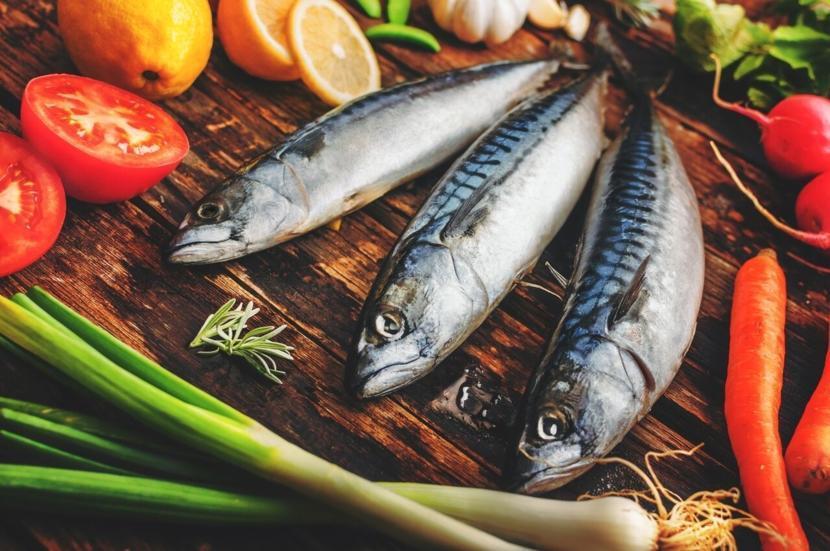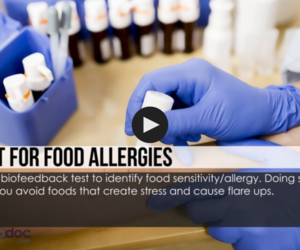Conquer Lupus Naturally

Systemic Lupus Erythematosus (SLE) is an autoimmune disease that is known to inflame and damage the heart, lungs, blood vessels, skin, brain, joints, and kidneys. Though corticosteroids is the usual medical treatment for lupus, which is capable of suppressing the immune system, that mode of treatment can have many crucial adverse effects. It is a good idea then to look at the natural ways people living with lupus can improve and manage their condition.
The Lupus Foundation of America states that about 16,000 new diagnoses are made each year, and 1.5 million people are living with lupus in the United States alone. This disorder is caused by the immune system mistaking normal, healthy cells for disease-causing intruders. As a result, the immune system shows symptoms of immunologic reactions, and this causes the body to flare up. Hence, it is not an easy task for doctors to deliver a prognosis.
Since the disorder attacks diverse areas of the body, it is quite hard to outline the exact symptoms of the condition, as with other chronic diseases. The most common symptoms of lupus include:
- Pain and swelling in joints
- Muscle pain
- Rash
- Unexplained fevers
- Chest pain when breathing deeply
- Oral and nasal lesions
- Constant fatigue for no good reason
Causative factors
Autoimmune disorders such as SLE have numerous general causative factors. These are displayed in a hyperactive immune system that reveals enormous inflammatory compounds upon very minor initiates or stimuli. The most commonly established factors leading to this condition comprise harm to the intestinal wall and a long-standing lack of omega-3 fatty acids, vitamin D3, and antioxidants.
- Vitamin D3 modulates or controls the immune system. Researches have shown that if its level is below 40 ng/ml, the individual's risk of experiencing inflammatory conditions is high. Having a vitamin D3 test would help to distinguish the autoimmune disorders.
- The optimal vitamin D3 level is 70-100 ng/ml. If the levels fall below 40 ng/ml, there is a major health risk factor for the development of chronic inflammatory disease.
- Many folks with SLE get irritated when exposed to direct sunlight, though sunlight during the hours between 10 a.m. and 2 p.m. is the best way to improve vitamin D levels.
- Autoimmune diseases like SLE are related to leaky gut syndrome, which is a very common issue. In such conditions, inflammatory changes are created by a number of pathogenic bacteria and yeasts. They damage the intestinal lining by taking control of the gut. Then the food particles are passed into the bloodstream. The immune system identifies the undigested food particles as toxic invaders and a massive immune attack takes place.
- The most common food allergens include genetically modified ingredients, gluten, soy products, artificial food additives and flavorings, peanuts, eggs, and pasteurized dairy. These foods should be avoided at all cost.
Remedies
- Gut transformation is completely essential for full recovery.
- An anti-inflammatory diet rich in liquids and nutrition based on raw and fermented foods are the first step in this regard.
- Fermented foods may include kimchi, fermented veggies, traditional sauerkraut, raw cheese, and amasai from 100 percent fresh grass-fed cows. These should be added as fundamental parts of the diet.
- Apple cider vinegar, fermented ginger-ale, kombucha, coconut kefir, and other fermented drinks should be in the diet throughout the day.
- The helpful microflora abolish pathogenic organisms in the body through the help of these foods that are extremely rich in probiotics, enzymes, and key amino acids.
- High-quality probiotic supplements with 50+ billion CFUs are tremendously advantageous.
- All these foods and supplements should be taken as much as possible.
- In order to reduce inflammation and assist the gut in healing fast, consuming water and lemon intermittently as well as fasting daily or weekly is very beneficial.
- The diet should focus on phytonutrient-rich vegetables, low glycemic fruit, and healthy fat sources like extra virgin olive oil, avocados, coconut products, sprouted nuts, and seeds. The diet must be low in sugar.
- Grass-fed beef, organic poultry, bison, wild-caught fish, lamb, and eggs have essential fatty acids and other nutrient combinations that improve hormone function and decrease inflammation.
When lupus is managed effectively, one can really increase their quality of life despite the condition. Beat lupus naturally by following some measures related to diets and supplements.
Changes in the diet: Lupus does not have a specific cure. However, there are medications that help reduce the discomfort caused by lupus. If you adopt a healthy lifestyle, there is nothing you cannot overcome, especially with regard to lupus. Lupus causes inflammation, pain in the joints, fatigue, and swelling. There are some foods you should avoid completely if you have been diagnosed with lupus.
Eliminate meat and diary products from the diet: It helps in reducing joint stiffness.
Consume raw foods: Eating raw fruits and vegetables provides all the nutrients that get lost during the cooking process. Eating fruits and vegetables raw also gives more energy to your body.
Eliminate sugar and processed food: It helps to get rid of migraines and maintains overall health.
Do not make changes in your diet all of a sudden. At times, your body may not be able to accept it. Do it step by step and get rid of one food item at a time.
Here are a few do's and don’ts on how to eat
Do not drink soda: These are acidic drinks and contain lots of sugar and chemicals. They are full of empty calories and cause inflammation and bloating.
Do drink water: Drink as much water as you can at regular intervals. It removes the toxins in your body. Keep reminders to drink water and have the habit of keeping water bottles with you.
Do not eat red meat: Red meat can cause flare-ups in lupus patients.
Do eat whole foods: Try eating fruits and vegetables in their raw form so as to get all the nutrients from them.
Do not use artificial sweetener: It is believed that artificial sweeteners have a negative impact on lupus sufferers.
Do eat easy-to-digest foods: Lupus causes trouble to the digestive system. Therefore, consume foods that are easy to digest and avoid complex foods. Soups and fruit smoothies are good alternatives.
Do not eat fast food: Fast food is packed with fats, salt, and sugar. Avoid these to lead a healthy life.
Do eat fish: Fish contains protein and is high in omega 3 fatty acids. Also, it is a good alternative to red meat.
















